By Johann Stephanowitz
Over one hundred thousand refugees, a turn away from Russia, and nationalist protests – one year after the latest Nagorno-Karabakh war, Armenia’s society is transforming. But many people are tired.
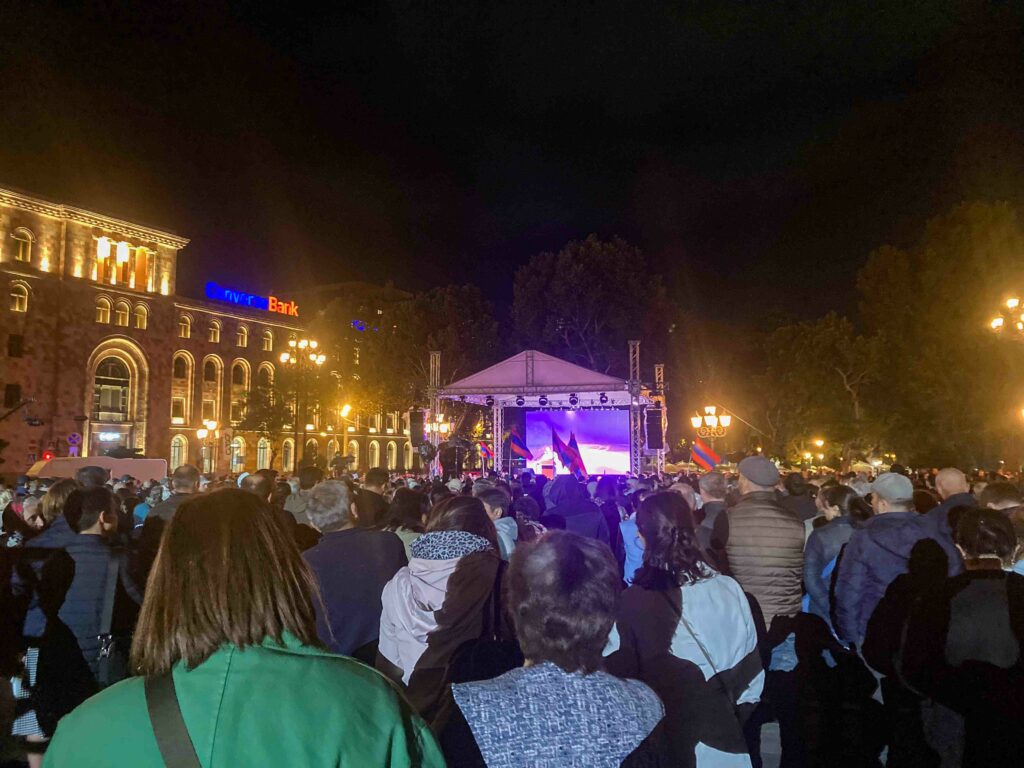
From a distance, the man who wants to become Armenia’s next prime minister looks like an esoteric guru. Archbishop Bagrat Galstanyan is standing on a small stage in the Republic Square in the heart of Yerevan, with a psychedelic graphic reminiscent of a 90s screensaver behind him. But instead of conciliatory sermons, he delivers a divisive political program. “For us, there is no other value than our homeland and our honor. We don’t have to serve anyone, neither inside nor outside,” Galstanyan shouts.
On this warm October evening, his “liberation movement”, for the first time in three months, holds a protest against the government. Several hundred demonstrators, quite a few of them carrying Armenia’s red, blue, and orange tricolor, listen to his words. “Together, we will go to the public television station because that is the center of lying propaganda, the den of evil,” he passionately addresses the crowd at the end of his speech. With three chants of “Armenia!” the people set off on a march to the headquarters of Armenian state television. Later that evening, he will be given 25 minutes to present his political ideas, where he will accuse Prime Minister Nikol Pashinyan of handing the country over to Azerbaijan and Turkey. However, he refuses to answer the television host’s questions, declaring: “I am not under interrogation here.”
Turning away from the former “protecting power”
Galstanyan, who until a few months ago was the Archbishop for Armenia’s northeastern Tavush province, is viewed as a new shimmering figure in Armenian politics. Many of his supporters feel betrayed by the government, which is currently trying to negotiate a peace agreement with Azerbaijan and appears ready for painful compromises to achieve this. While there are indications that Galstanyan’s nationalist movement is supported and financed by Russia, sentiments towards Russia are far from positive among protesters on this day. Many here also feel betrayed by the former “protecting power”, which did little last autumn when Azerbaijan’s troops invaded Nagorno-Karabakh.
The war also led to a turnaround in foreign policy at record speed. In the spring, Prime Minister Pashinyan announced his intention to leave the Collective Security Treaty Organization, a Russian-led NATO counterpart, even though Russia remains economically important to Armenia. Instead, Pashinyan announced his intention to apply for Armenia’s EU membership soon. Attitudes towards Russia in society are changing rapidly as well: five years ago, more than 87 percent viewed relations with Russia positively, but by 2023, this figure had fallen to just over 30 percent, according to a study by the International Republican Institute. In contrast, the EU, which supports Armenia with an observer mission on the border with Azerbaijan, is gaining prestige: 87 percent saw relations with the EU as good in the 2023 study.
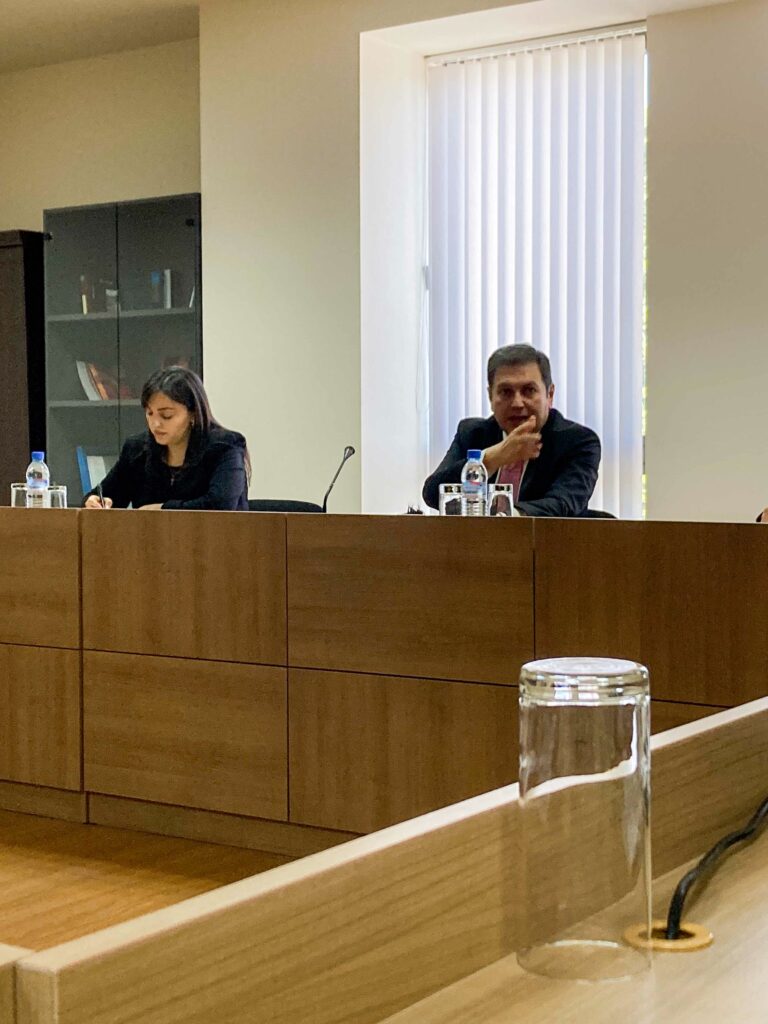
Does Azerbaijan really want peace?
However, the biggest hurdle for Armenia’s potential EU membership remains a sustainable peace treaty with its neighbor and rival Azerbaijan. “We almost have a negotiated peace treaty with Azerbaijan,” says Armenia’s Deputy Foreign Minister Paruyr Hovhannisyan in an interview. “But we have the impression that they don’t want peace.” Even after the 2023 war, Baku continues with provocations on the border, in some cases even annexing territories that belong to Armenia under international law. The EU is working to mediate between the two countries in dialogue formats. Still, the regime of Azerbaijan’s ruler Ilham Aliyev has repeatedly succeeded in using its influence through gas deals and events such as the UN Climate Change Summit in Baku.
However, the unsatisfactory negotiations with Azerbaijan are not the only challenge for Armenia’s government, as the conquest of Nagorno-Karabakh has led to the displacement of 130,000 ethnic Armenians to Armenia. “Finding accommodation and jobs for the people are the biggest challenges,” says Hovhannisyan. Even though, as Armenians, the refugees are entitled to Armenian citizenship, only a small number of them actually possess it, despite holding passports issued by the Republic of Armenia. According to the deputy foreign minister, this makes it easier to organize international aid for the people. Critics, however, argue that the government seeks to prevent these people from voting against them.
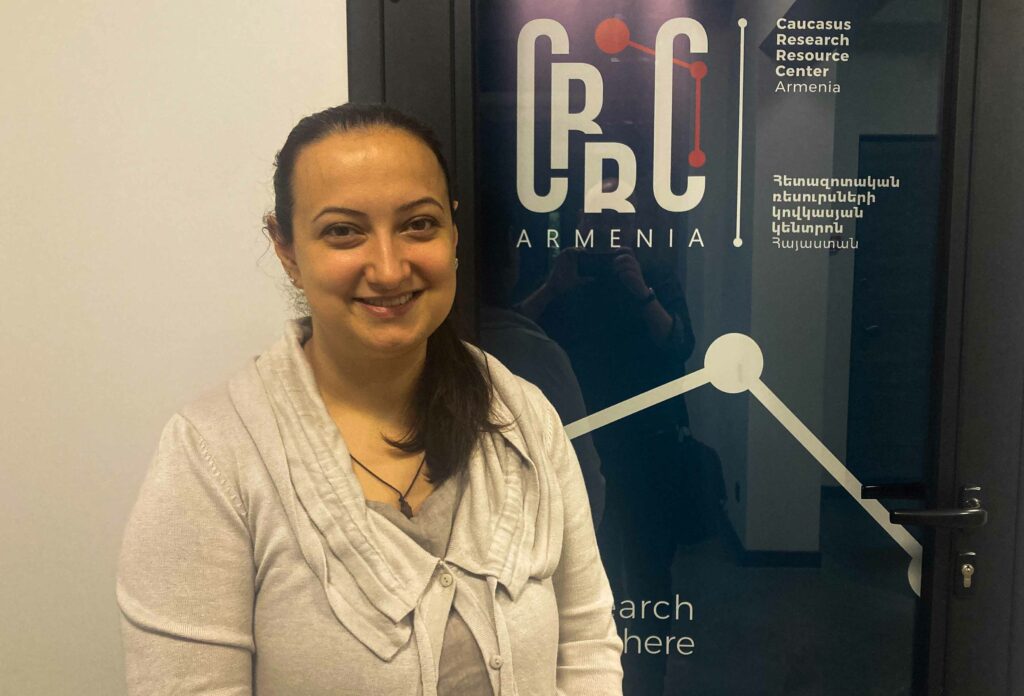
Many economic problems are unsolved
Sociologist Sona Balasanyan from the Caucasus Research Resource Centre also sees the integration of the Nagorno-Karabakh refugees as a significant challenge for Armenian society. She welcomes for the interview with baklava and coffee in the modern start-up office on the edge of Yerevan city center, where she and her colleagues conduct independent sociological studies on Armenian society and use them to inform political actors.
“We share the same ethnicity, but these people have been displaced. They have left everything behind and want to start a new life in Armenia. This is a crisis for the institutions as well as for the government and society,” says Balasanyan. For her, this refugee crisis is the latest in the line of challenges: “Due to the war, security is the biggest problem, but we still have many economic issues. And, of course, poverty and unemployment issues will now deepen rather than be solved.”
The two wars within three years have taken their toll on Armenian society. Added to this, challenges such as corruption, unemployment, and inflation weigh heavily on the people. “I would characterize it as a society that has isolated itself from the government, politics, and movements: the masses are simply tired. They want some time, a break from the current state of affairs. Even when something massive happens, you can see that people are just apathetic,” explains Balasanyan.
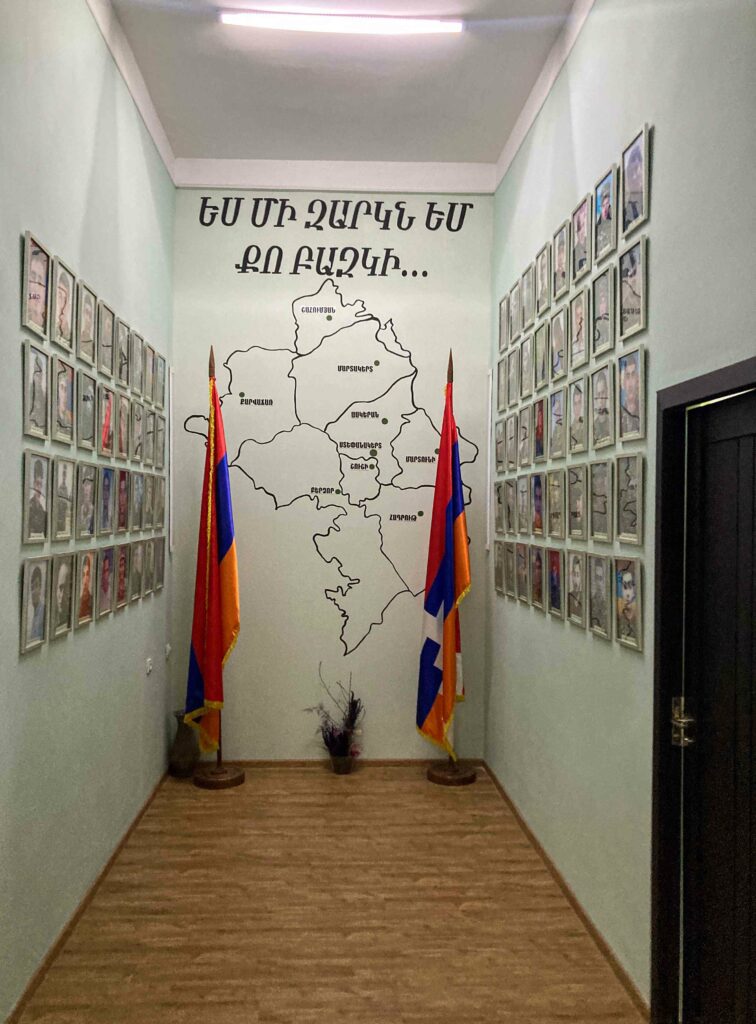
A traumatized generation
This apathy is also noticeable in conversations with young people. Anyone talking to students outside Yerevan State University will hear from many that they find Armenia’s current political situation difficult. “We have many unresolved problems regarding our independence, and our country is still in danger after the loss of Artsakh,” says Elen, who studies English and French and works as an actress.
But despite her dissatisfaction, she doesn’t want to leave Armenia to work in Europe, for example: “I want to experience the cultures of different countries and everything, but I still want to live here and contribute to my country, because that’s what we need most. We have to work for our country. We need to make our country better,” says Elen. Like many young Armenians, she feels deeply patriotic towards her homeland—especially after the recent wars. Yet, she doesn’t want to engage in politics: “I really don’t like politics and I don’t think protests will help us.”
Sociologist Balasanyan sees the youth, in particular, as being traumatized by the war: “Young people were very disappointed after the events. Many of them lost friends or brothers in the war.” Instead of developing a joint plan for the future, many withdraw into their private lives and focus on their families. “Unfortunately, this disappointment of the youth and fear of change also turn into moods and nationalist sentiments.”
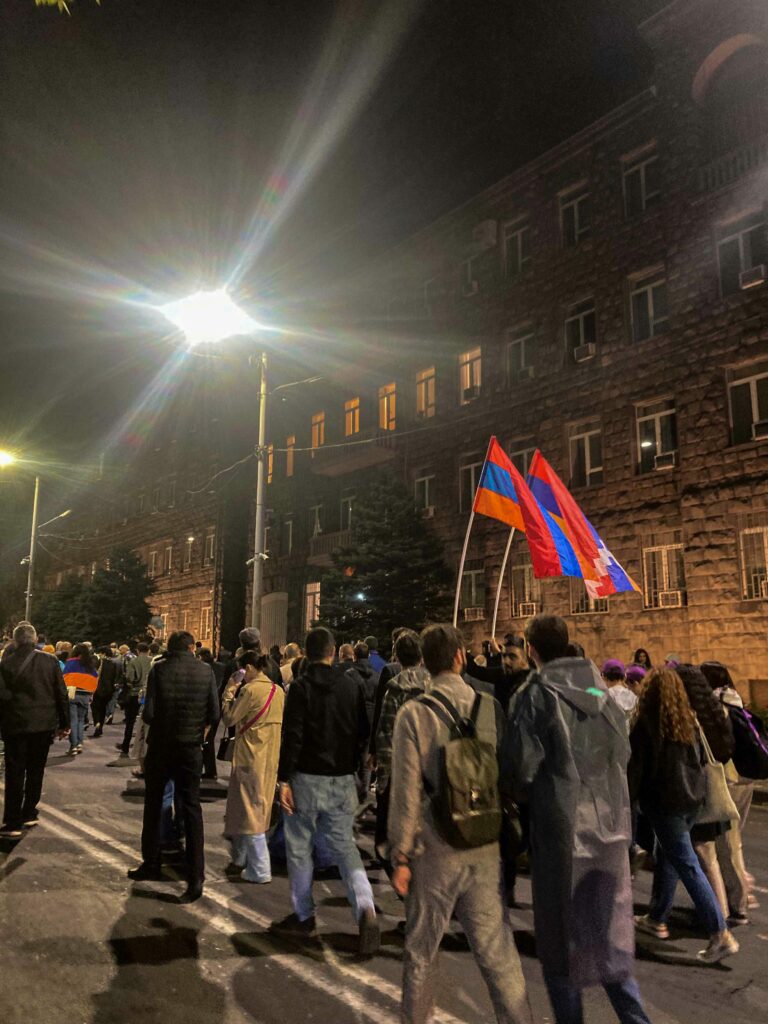
While populist leaders like Bagrat Galstanyan also attract many young people, a talk with the young protesters at his rally reveals that many don’t believe in his nationalist sermons either. For them, he is just an outlet to get rid of their frustration and resentment. Nor does he provide a clear program for Armenia’s future. Yet, what Armenia’s society truly needs right now is a clear perspective.
This article was published within the frames of “Correspondents in Conflict” Project,
implemented by Yerevan Press Club and Deutsche Gesellschaft e. V. The Project is
funded by the German Federal Foreign Office within the “Eastern Partnership Program”.
The contents of this article are the sole responsibility of the implementing partners and can in
no way be taken to reflect the views of the Federal Foreign Office. #civilsocietycooperation
 Johann Stephanowitz is a journalist based in Berlin. He is currently an online editor for the newspaper Berliner Morgenpost. Previously, he worked for outlets like Zeit-Online, Jungle World, and Tagesspiegel. Johann studied Eastern European Studies, European Ethnology, and Cultural Sciences in Berlin (Germany), Poznań (Poland), and Moscow (Russia).
Johann Stephanowitz is a journalist based in Berlin. He is currently an online editor for the newspaper Berliner Morgenpost. Previously, he worked for outlets like Zeit-Online, Jungle World, and Tagesspiegel. Johann studied Eastern European Studies, European Ethnology, and Cultural Sciences in Berlin (Germany), Poznań (Poland), and Moscow (Russia).












